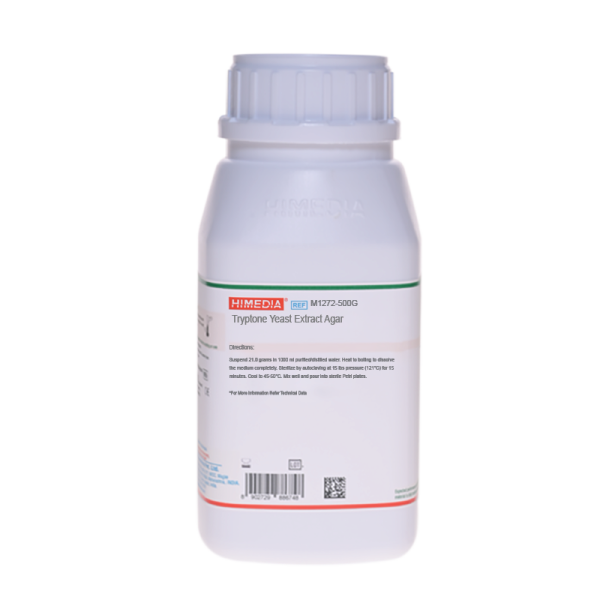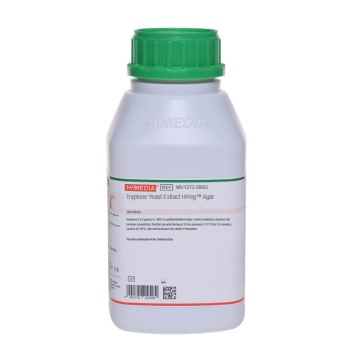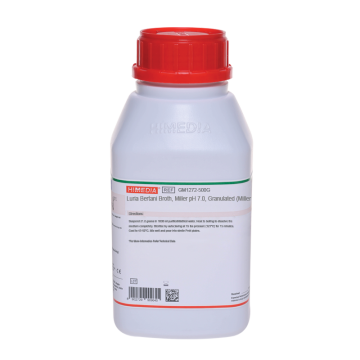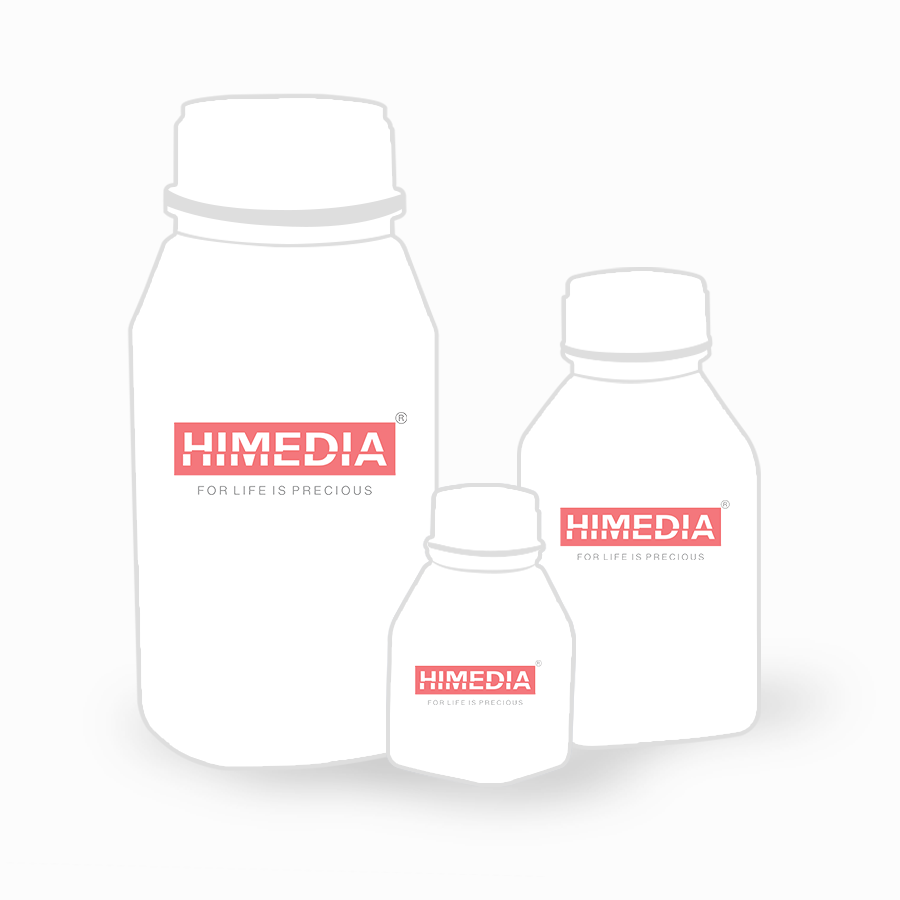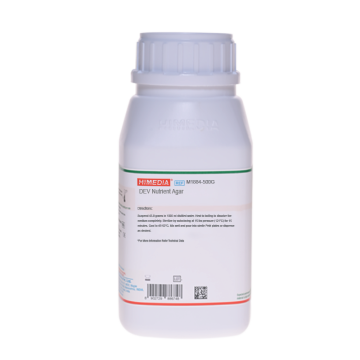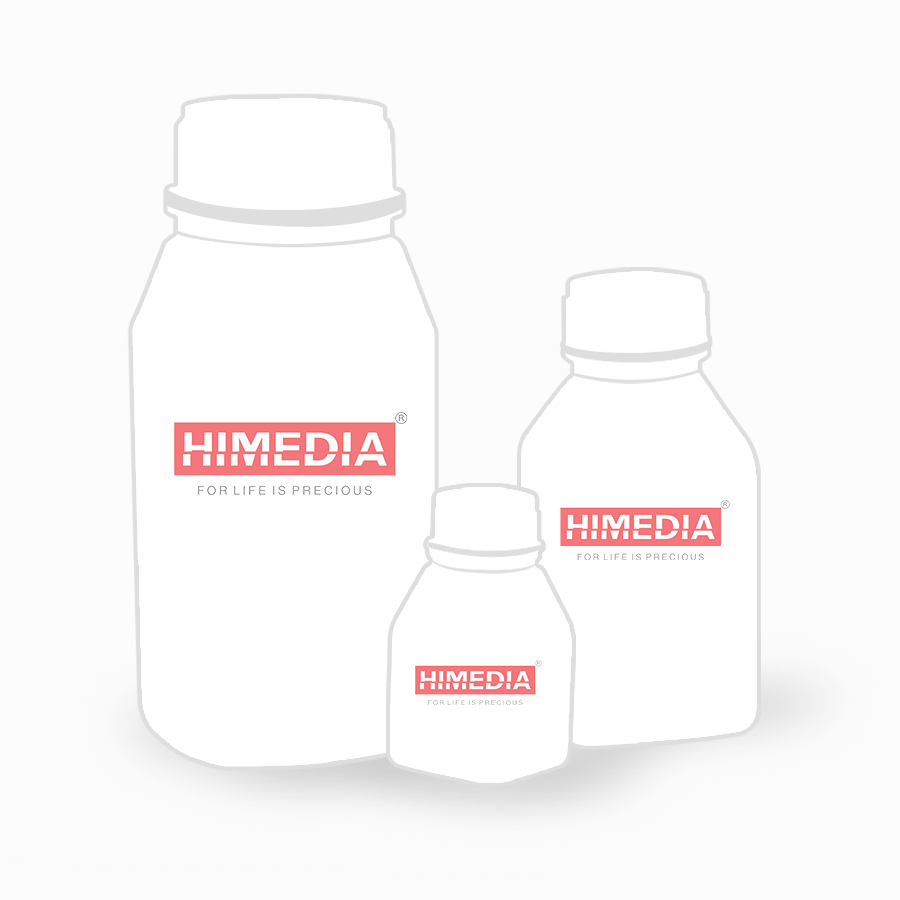 Your enquiry has been submitted
Your enquiry has been submitted
Tryptone Yeast Extract Agar
Intended Use
Recommended for estimation of microbial counts in water.
Composition**
| Ingredients | g/L |
|---|---|
| Tryptone | 6.000 |
| Yeast extract powder | 3.000 |
| Agar | 12.000 |
| Final pH (at 25°C) | 7.2±0.2 |
**Formula adjusted, standardized to suit performance parameters
Directions
Suspend 21 grams in 1000 ml purified / distilled water. Heat to boiling to dissolve the medium completely. Sterilize by autoclaving at 15 lbs pressure (121°C) for 15 minutes. Cool to 45-50°C. Mix well and pour into sterile Petri plates.
Principle And Interpretation
Periodic sampling and determination of microbial counts of water used for recreation such as beaches etc, open natural/ man made reservoir is important. The total count might be indicative of the overall sanitary conditions at that site (1).
Tryptone Yeast Extract Agar is formulated as described by ISO Committee (2) for the enumeration of viable microorganisms in water under the specification ISO 6222:1988.
Tryptone and yeast extract provide nitrogenous compounds, vitamin B complex and other essential growth nutrients. Total colony forming units (CFU) from the water samples to be tested is obtained either by spread plate or by pour plate technique.
Type of specimen
Water samples
Specimen Collection and Handling:
For water samples, follow appropriate techniques for sample collection, processing as per guidelines and local standards (3). After use, contaminated materials must be sterilized by autoclaving before discarding.
Warning and Precautions :
Read the label before opening the container. Wear protective gloves/protective clothing/eye protection/ face protection. Follow good microbiological lab practices while handling specimens and culture. Standard precautions as per established guidelines should be followed while handling specimens. Safety guidelines may be referred in individual safety data sheets.
Limitations :
- 1.This medium is general purpose medium and may not support the growth of fastidious organisms.
Performance and Evaluation
Performance of the medium is expected when used as per the direction on the label within the expiry period when stored at recommended temperature.
Quality Control
Appearance Cream to yellow homogeneous free flowing powder
Gelling Firm, comparable with 1.2% Agar gel.
Colour and Clarity of prepared medium Light amber coloured clear to slightly opalescent gel forms in Petri plates.
Reaction Reaction of 2.1% w/v aqueous solution at 25°C. pH: 7.2±0.2
pH
7.00-7.40
Cultural Response
Cultural characteristics observed after an incubation at 35-37°C for 18-24 hours.
| Organism | Inoculum (CFU) | Growth | Recovery |
|---|---|---|---|
| # Klebsiella aerogenes ATCC 13048 (00175*) | 50-100 | luxuriant | >=70% |
| Escherichia coli ATCC 25922 (00013*) | 50-100 | luxuriant | >=70% |
| Salmonella Typhimurium ATCC 14028 (00031*) | 50-100 | luxuriant | >=70% |
| Salmonella Enteritidis ATCC 13076 (00030*) | 50-100 | luxuriant | >=70% |
Key: (*) Corresponding WDCM numbers, (#) Formerly known as Enterobacter aerogenes
Storage and Shelf Life
Store between 10-30°C in a tightly closed container and the prepared medium at 20-30°C. Use before expiry date on the label. On opening, product should be properly stored dry, after tightly capping the bottle in order to prevent lump formation due to the hygroscopic nature of the product. Improper storage of the product may lead to lump formation. Store in dry ventilated area protected from extremes of temperature and sources of ignition. Seal the container tightly after use. Product performance is best if used within stated expiry period.
Disposal
User must ensure safe disposal by autoclaving and/or incineration of used or unusable preparations of this product. Follow established laboratory procedures in disposing of infectious materials and material that comes into contact with sample must be decontaminated and disposed of in accordance with current laboratory techniques (4,5).
Reference
- 1.Corry J. E. L., Curtis G. D. W., and Baird R. M., Culture Media for Food Microbiology, Vol. 34, Progress in Industrial Microbiology, 1995, Elsevier, Amsterdam
- 2. International Organization for Standardization (ISO), 1988, Draft ISO/DIS 6222.
- 3.Lipps WC, Braun-Howland EB, Baxter TE, eds. Standard methods for the Examination of Water and Wastewater, 24th ed. Washington DC:APHA Press; 2023.
- 4.Isenberg, H.D. Clinical Microbiology Procedures Handbook 2nd Edition.
- 5.Jorgensen, J.H., Pfaller, M.A., Carroll, K.C., Funke, G., Landry, M.L., Richter, S.S and Warnock., D.W. (2015) Manual of Clinical Microbiology, 11th Edition. Vol. 1.
| Product Name | Tryptone Yeast Extract Agar |
|---|---|
| SKU | M1272 |
| Product Type | Regular |
| Physical Form | Powder |
| Origin | Animal |
| Packaging type | HDPE |
| References | 1. Baird R.B., Eaton A.D., and Rice E.W., (Eds.), 2015, Standard Methods for the Examination ofWater and Wastewater, 23rd ed., APHA, Washington, D.C.2.Corry J. E. L., Curtis G. D. W., and Baird R. M., Culture Media for Food Microbiology, Vol. 34, Progress in IndustrialMicrobiology, 1995, Elsevier, Amsterdam |



